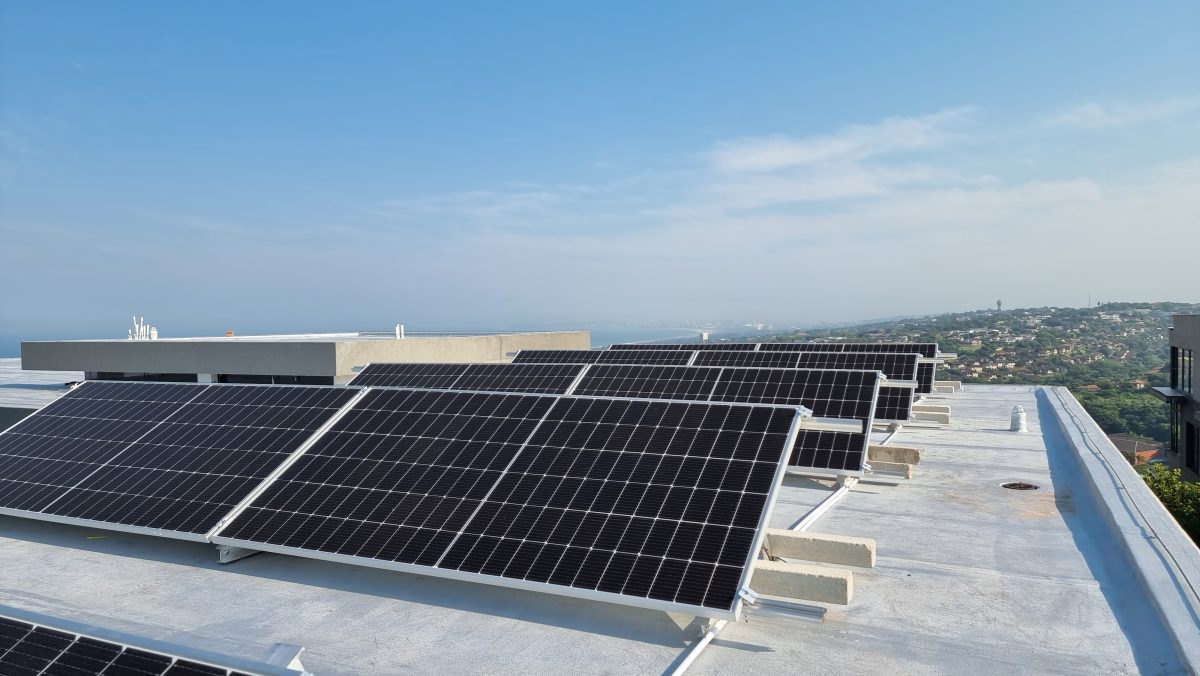With the Eskom tariff increase of a further 9.6% kicking in this April, and the price of solar power dropping by a whopping 80% since 2010, it’s quite clear that this renewable energy source is the most cost-effective – and ethical – option on the market. But as you start to research solar power, you’ll quickly discover there’s more to this sophisticated energy solution than just the solar panels. The first thing you’ll need to consider is whether you’re choosing an on-grid or off-grid solar power system. Here’s what you need to know.
What is on-grid solar power?
With the on-grid solar system, you’re still connected to the national power utility grid. When there’s insufficient solar power to operate your appliances, you can then rely on the grid power to meet the energy deficit. However, when there’s an overproduction of solar energy, you can then store this in a battery, or even selling it back to the grid to offset your costs.
What is off-grid solar power?
An off-grid solar power requires battery backup so that, as soon as there is insufficient solar energy, you can rely on the battery power. With this energy system, you’re getting power even when there’s load shedding.
What is the difference between on- and off-grid solar?
While we’ve touched on a few of the key differences between these two, we’re going to expand on them so that you have a better understanding of the individual systems before making your choice.
- Electricity access
Off-grid: Because you’re not connected to the national grid with an off-grid solar system, you’re reliant on the sun and battery storage for all your electricity needs. However, it’s worth noting that batteries can be an expensive investment, and often people only opt to implement them at a later stage, which means that you could be without electricity when there’s no sunshine.
On-grid: The on-grid or means you always have access to electricity – unless Eskom implements load shedding! With this system, when there’s insufficient solar power, you’re still able to draw on electricity from the grid so that you never struggle from uninterrupted supply.
- Power outages
Off-grid: With outages an unfortunate reality for residences and business across South Africa, it’s important to know the impact on your system. With off-grid, there is no tie-in to the national grid, so whether it’s load shedding, floods or other external factors, your electricity will continue uninterrupted.
On-grid: If you have solar energy, then your system will keep operating even if there’s a power outage. However, if there’s not enough solar energy and a power outage, you’ll shut down. That’s why it’s worth connecting to a battery backup that stores the excess solar energy.
- Costs
Off-grid: A solar system that isn’t connected to the national power grid will require battery backup, unless you’re happy to operate without electricity when the sun doesn’t shine. Battery backups, while much more advanced in the past few years and substantially less expensive, are still quite costly from the get-go.
On-grid: If you live in a sunny area, then you’re able to rely quite significantly on the power generated by solar energy. This relates to a much lower utility bill. However, for areas that are a lot cloudier than not, then you’re going to be a lot more reliant on the national grid and end up paying more. Another cost to concern is demand charges which are levied to commercial properties during peak electricity usage hours. There’s also a service fee or delivery charge that can be expected with an on-grid system.
- Excess energy production
Off-grid: There’s always the hope that you will be producing more electricity than is needed, and in the case of an off-grid power supply, you can store this in battery backup for later use. However, this is completely dependent on the size of your power system, the amount of energy you use and the number of batteries you install.
On-grid: While off-grid systems allow you to use excess energy at a later stage, with an on-grid system you can actually sell the energy back to the grid and offset your electricity costs.
What is better for you?
The type of system you need is completely reliant on your location and electricity needs. If you reside in an area with limited sun then it’s worth considering a grid-tied system so that you have uninterrupted power. However, for those living in really rural areas where access to the national grid is limited or unreliable, then an off-grid system is best.
Your best bet is to contact the industry experts, JUP Solutions, to discuss your renewable power options available. They’ll assist with the correct choices, the installation and any follow-up assistance you require. Whether you’re looking for a once-off system, or something that is scalable, JUPS can assist!
Share this Post

